The role of an Analyst Programmer is central to integrating business needs with technology solutions. They are instrumental in designing, coding, testing, and maintaining software applications according to specifications.
Skills required for this role include proficiency in programming languages like Java or Python, a strong understanding of database management, and the ability to analyze and solve complex problems.
Candidates can write these abilities in their resumes, but you can’t verify them without on-the-job Analyst Programmer skill tests.
In this post, we will explore 9 essential Analyst Programmer skills, 11 secondary skills and how to assess them so you can make informed hiring decisions.
Table of contents
9 fundamental Analyst Programmer skills and traits
The best skills for Analyst Programmers include Programming Languages, Database Management, System Analysis, Software Development, Problem Solving, Data Analysis, Technical Documentation, Testing and Debugging and API Integration.
Let’s dive into the details by examining the 9 essential skills of a Analyst Programmer.
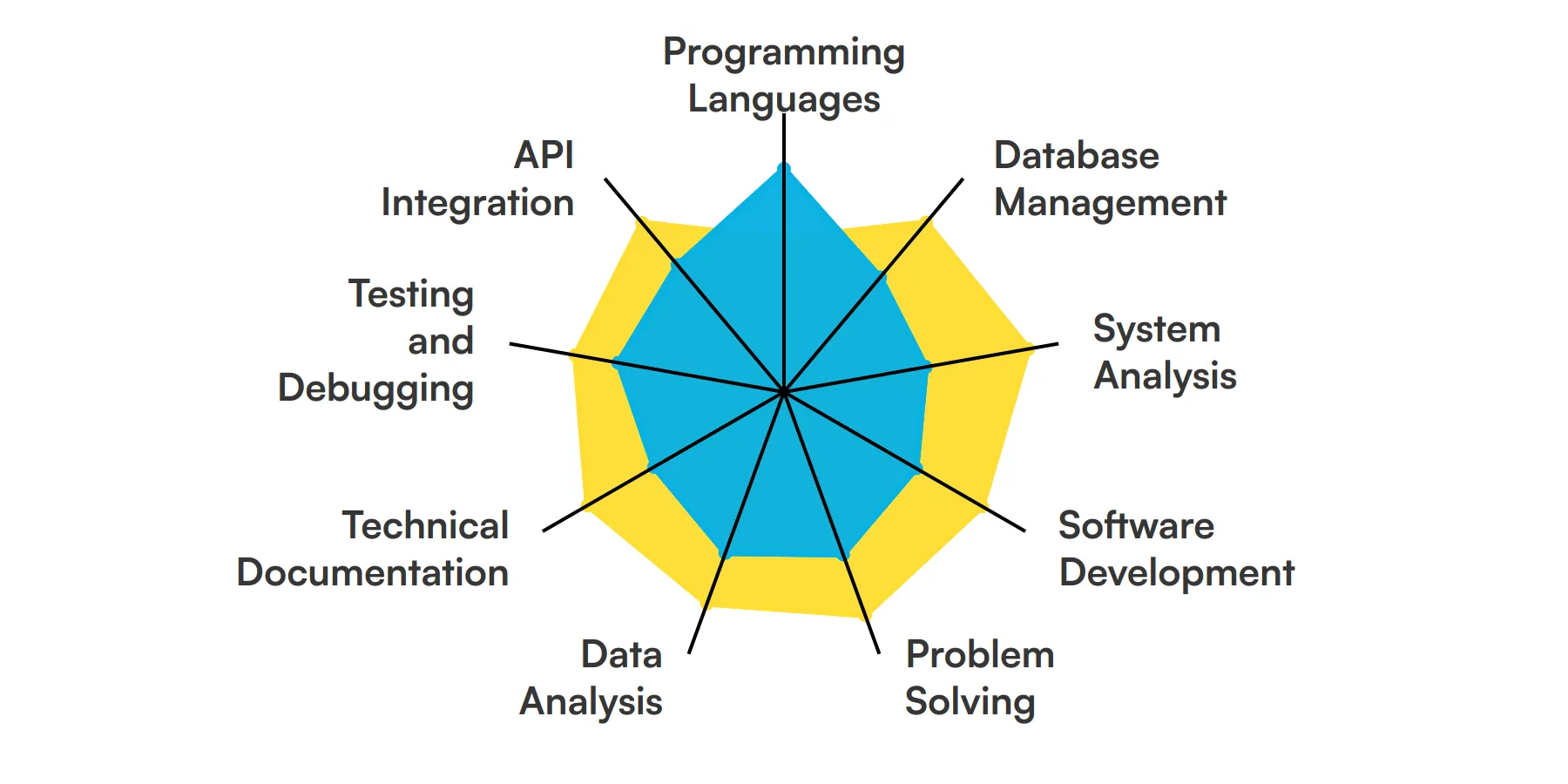
Programming Languages
An analyst programmer must be proficient in multiple programming languages such as Java, Python, or C#. These languages are the tools of the trade, enabling the creation of software solutions tailored to business needs.
Check out our guide for a comprehensive list of interview questions.
Database Management
Understanding and managing databases is crucial for an analyst programmer. This skill involves designing, implementing, and maintaining databases to ensure data integrity and accessibility.
System Analysis
System analysis involves examining and understanding the current systems in place. An analyst programmer uses this skill to identify areas for improvement and to design more efficient systems.
For more insights, check out our guide to writing a System Analyst Job Description.
Software Development
This skill encompasses the entire process of creating software, from initial planning to coding and testing. An analyst programmer needs to be adept at developing software that meets user requirements and business goals.
Problem Solving
Problem-solving skills are essential for identifying issues within systems and developing effective solutions. An analyst programmer must be able to think critically and creatively to overcome technical challenges.
Check out our guide for a comprehensive list of interview questions.
Data Analysis
Data analysis involves interpreting complex data sets to inform decision-making. An analyst programmer uses this skill to extract meaningful insights that can drive business strategies and improvements.
Technical Documentation
Creating clear and comprehensive technical documentation is a key part of the analyst programmer's role. This documentation ensures that systems can be maintained and understood by other team members and stakeholders.
For more insights, check out our guide to writing a Technical Writer Job Description.
Testing and Debugging
Testing and debugging are critical for ensuring the functionality and reliability of software. An analyst programmer must be skilled in identifying and fixing bugs to deliver high-quality software products.
API Integration
API integration involves connecting different software systems to work together seamlessly. An analyst programmer uses this skill to enhance system functionality and enable data exchange between applications.
Check out our guide for a comprehensive list of interview questions.
11 secondary Analyst Programmer skills and traits
The best skills for Analyst Programmers include Version Control, User Interface Design, Cloud Computing, Agile Methodologies, Network Security, Business Acumen, Cross-Platform Development, Mobile Development, DevOps Practices, Machine Learning and API Development.
Let’s dive into the details by examining the 11 secondary skills of a Analyst Programmer.
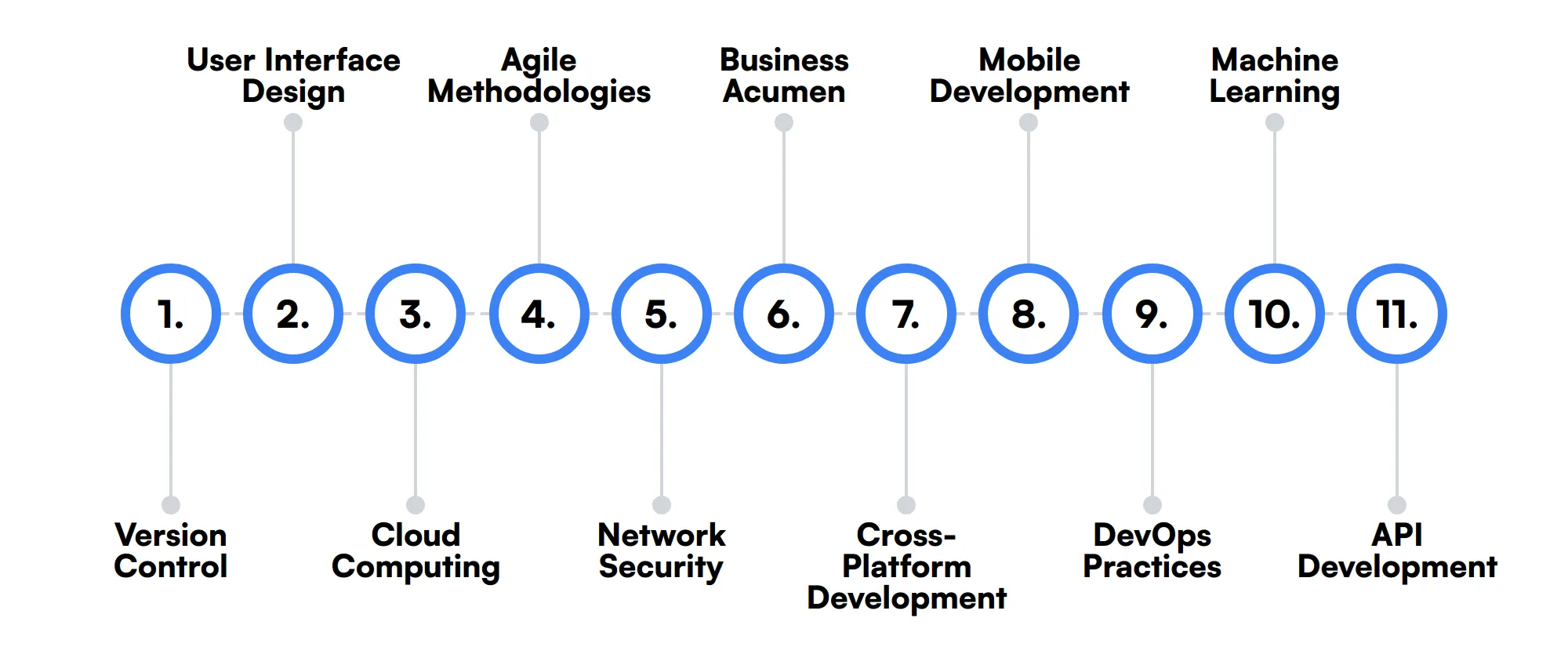
Version Control
Knowledge of version control systems like Git is important for managing code changes and collaborating with other developers.
User Interface Design
Understanding the principles of user interface design helps in creating intuitive and user-friendly software applications.
Cloud Computing
Familiarity with cloud computing platforms such as AWS or Azure can be beneficial for deploying and managing applications in the cloud.
Agile Methodologies
Experience with agile methodologies like Scrum or Kanban can improve project management and team collaboration.
Network Security
Basic knowledge of network security practices helps in protecting software applications from potential threats and vulnerabilities.
Business Acumen
Understanding the business context and objectives can help an analyst programmer align their technical solutions with organizational goals.
Cross-Platform Development
Skills in cross-platform development enable the creation of applications that work on multiple operating systems and devices.
Mobile Development
Knowledge of mobile development frameworks and languages is useful for creating applications for smartphones and tablets.
DevOps Practices
Familiarity with DevOps practices can streamline the development and deployment process, ensuring faster and more reliable software releases.
Machine Learning
Understanding machine learning concepts can be advantageous for developing intelligent applications that leverage data for predictive insights.
API Development
Skills in API development are useful for creating interfaces that allow different software systems to communicate and share data.
How to assess Analyst Programmer skills and traits
Assessing the skills and traits of an Analyst Programmer can be a multifaceted process. It's not just about knowing the programming languages or database management systems they are familiar with. You need to evaluate their ability to analyze systems, develop software, solve problems, and document technical details effectively. This comprehensive assessment ensures that the candidate can handle the diverse responsibilities of the role.
Traditional resumes and interviews might not give you the full picture of a candidate's capabilities. Skills-based hiring practices, such as talent assessments, provide a more accurate measure of a candidate's competencies. For instance, Adaface on-the-job skill tests can help you achieve a 2x improved quality of hires by focusing on real-world scenarios and practical skills. This approach not only saves time but also ensures you find the right fit for your team.
Let’s look at how to assess Analyst Programmer skills with these 6 talent assessments.
Technical Aptitude & Python Test
Technical Aptitude & Python Test evaluates candidates on their proficiency in Python programming and technical aptitude. The test covers Python basics, object-oriented programming, data structures, algorithms, debugging, and problem-solving.
The test assesses understanding of Python basics, data types, conditional statements, loops, functions, lists, dictionaries, file handling, object-oriented programming, and exception handling. It includes scenario-based MCQs and a coding question to test hands-on Python programming skills.
Successful candidates demonstrate strong problem-solving skills and a solid grasp of Python programming concepts, including the ability to write and debug code effectively.
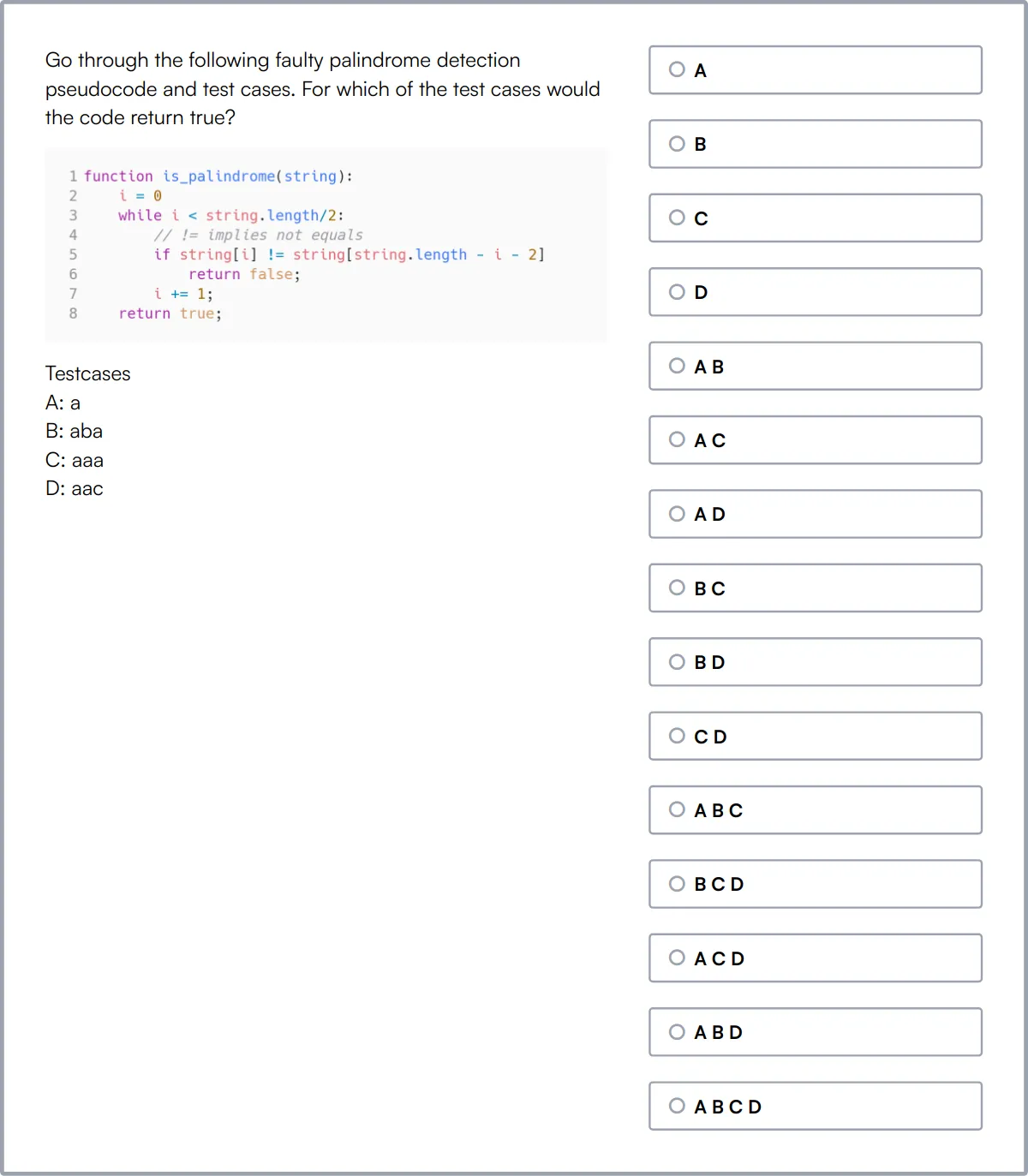
Data Modeling Skills Test
Data Modeling Skills Test evaluates a candidate's knowledge and abilities in database design, SQL, ER diagrams, normalization, relational schema, data integrity, data mapping, data validation, and data transformation.
The test covers data modeling, database design, SQL, ER diagrams, normalization, relational schema, data integrity, data mapping, data validation, and data transformation. It includes 10 data modeling MCQs and 5 SQL MCQs.
Candidates who perform well show a deep understanding of database design principles and the ability to create efficient and normalized database schemas.
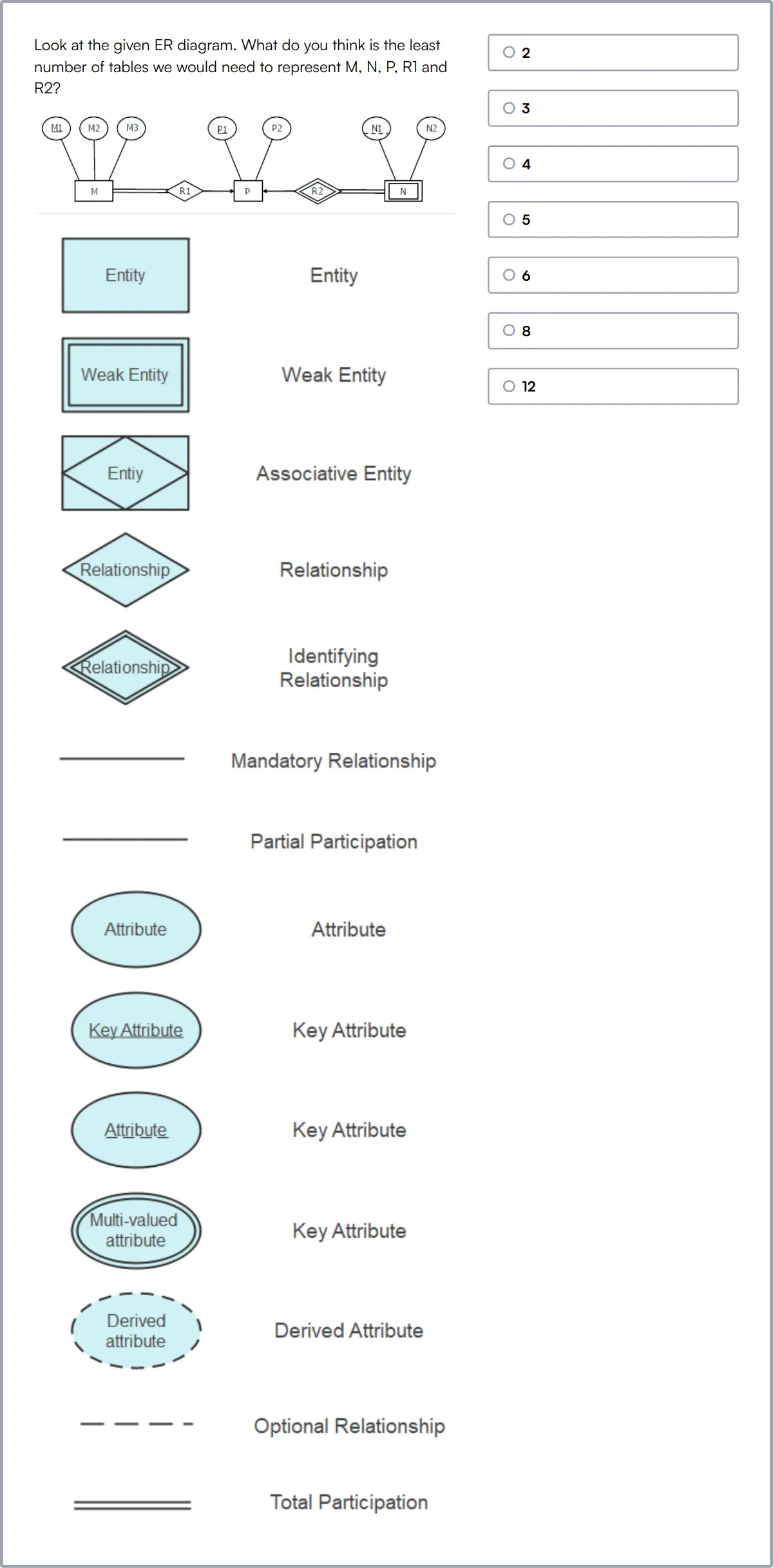
System Design Online Test
System Design Online Test evaluates candidates on their proficiency in designing software systems that meet functional and non-functional requirements. The test covers system design, database design, data modeling, system integration, security, performance optimization, and quality assurance.
The test assesses understanding of system design, algorithms and data structures, network protocols, database design, distributed systems, cloud computing, performance optimization, and microservices architecture. It includes scenario-based MCQs to evaluate practical knowledge.
High-scoring candidates demonstrate the ability to identify system requirements, choose appropriate architectures and design patterns, and create high-level design specifications.
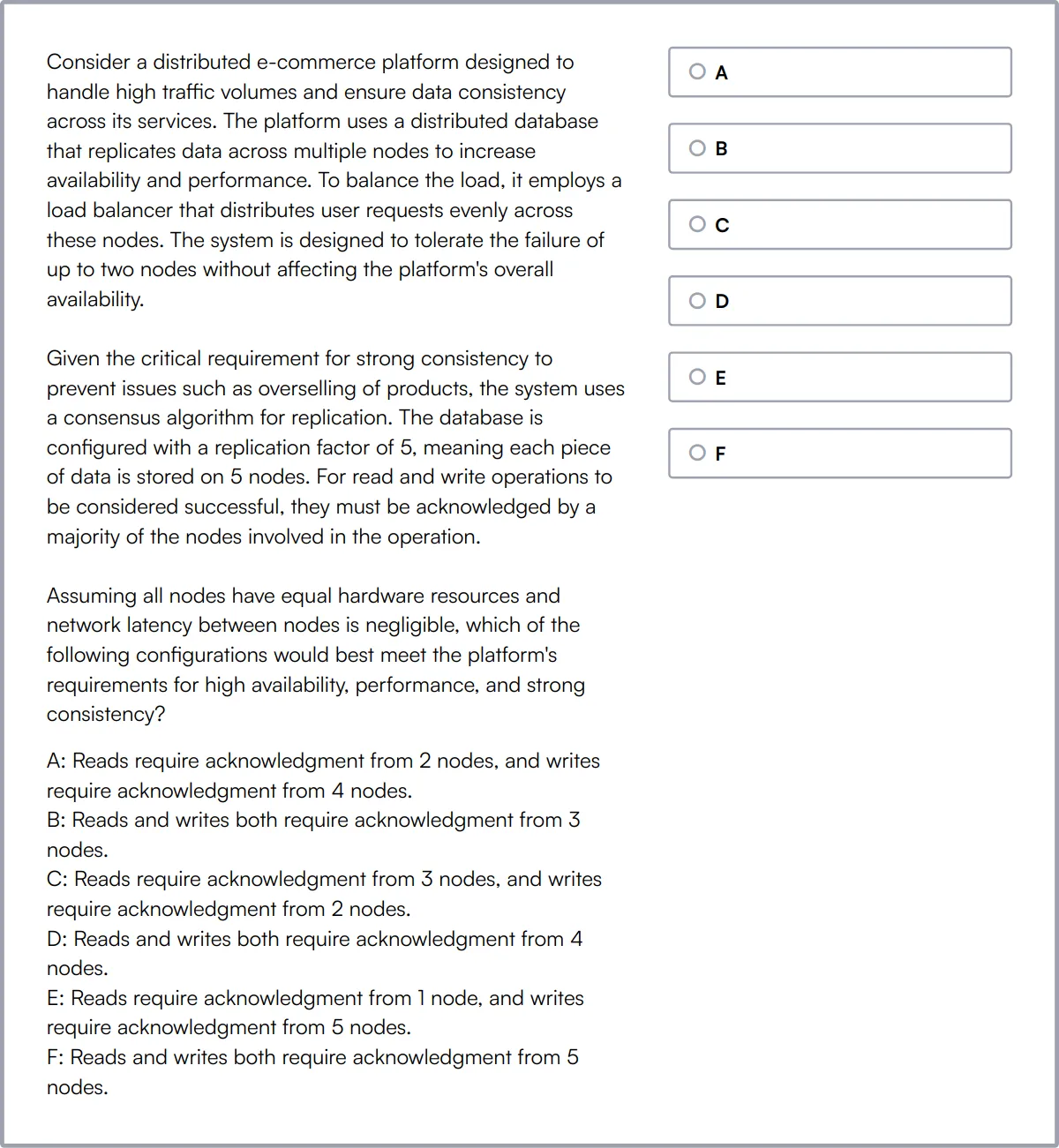
Software Engineering Online Test
Software Engineering Online Test evaluates candidates on their understanding of core computer science concepts such as data structures, algorithms, databases, programming paradigms, and design patterns.
The test covers object-oriented programming, database design, algorithms and data structures, testing and quality assurance, web development, software security, and code optimization. It includes scenario-based MCQs and a coding question to evaluate problem-solving and hands-on programming ability.
Candidates who excel in this test show a strong grasp of software engineering principles and the ability to write optimized and secure code.
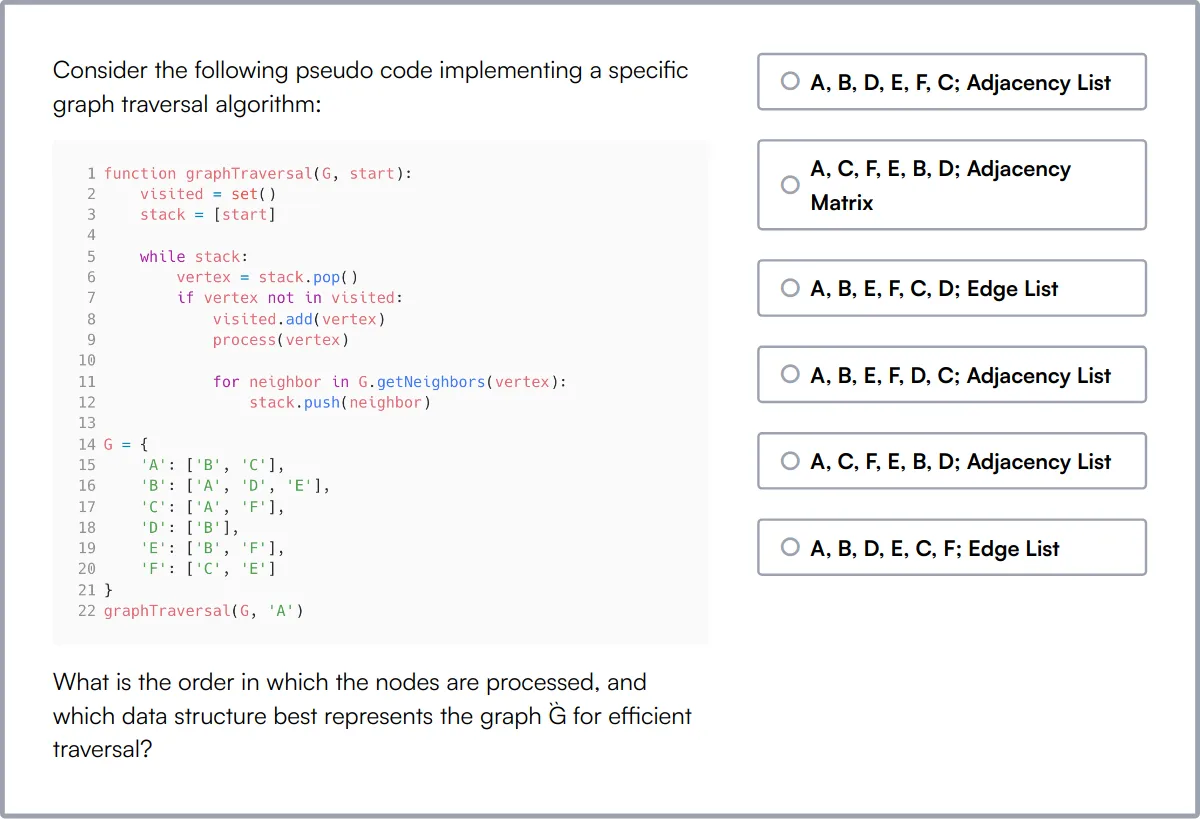
Problem Solving Test
Problem Solving Test evaluates a candidate's ability to understand instructions, analyze data, and respond to complex problems or situations. The test covers abstract reasoning, critical thinking, deductive reasoning, inductive reasoning, pattern matching, and spatial reasoning.
The test includes questions on logical reasoning, data interpretation, spatial reasoning, abstract reasoning, and critical thinking. It provides insights into a candidate's problem-solving abilities, learning agility, and coachability.
Successful candidates demonstrate strong analytical skills and the ability to think critically and solve complex problems.
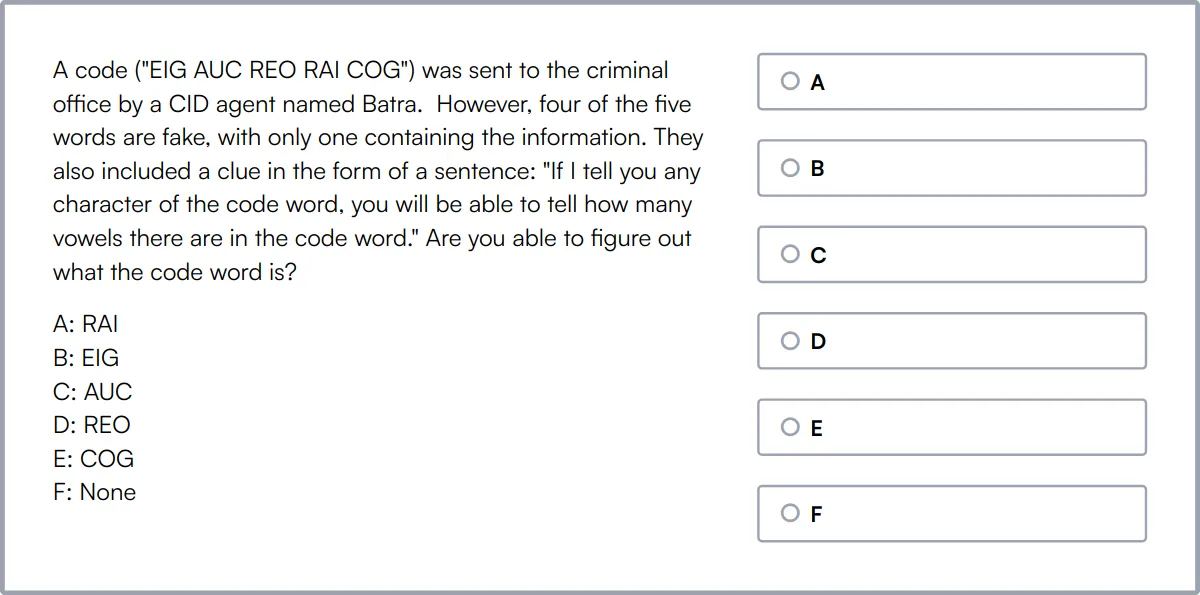
Data Analysis Test
Data Analysis Test assesses a candidate's ability to handle, modify, analyze, and interpret data. The test covers data analysis, business analysis, data interpretation, and SQL.
The test includes questions on data modeling, data analysis, business analysis, data interpretation, data queries and databases (SQL), data operations, data investigations, and popular data tools (Excel). It uses scenario-based MCQs to screen for experience with analyzing data to find possible outcomes, detect anomalies, extract meaningful insights, and visualize data.
Candidates who perform well demonstrate strong analytical skills and the ability to interpret and manipulate data effectively using various tools and techniques.

Summary: The 9 key Analyst Programmer skills and how to test for them
| Analyst Programmer skill | How to assess them |
|---|---|
| 1. Programming Languages | Evaluate candidate's proficiency in coding with multiple languages. |
| 2. Database Management | Assess ability to design, implement, and maintain databases. |
| 3. System Analysis | Check understanding of system requirements and specifications. |
| 4. Software Development | Review experience in building software from concept to launch. |
| 5. Problem Solving | Test analytical skills through complex problem-solving scenarios. |
| 6. Data Analysis | Examine skills in extracting insights from large datasets. |
| 7. Technical Documentation | Verify ability to create clear, comprehensive system documentation. |
| 8. Testing and Debugging | Determine skill in identifying and fixing software bugs. |
| 9. API Integration | Assess proficiency in connecting and utilizing various APIs. |
C# Online Test
Analyst Programmer skills FAQs
What programming languages should an Analyst Programmer know?
An Analyst Programmer should be proficient in languages like Java, Python, and C#. Knowledge of JavaScript and SQL is also beneficial for front-end and database interaction.
How important is database management skill for an Analyst Programmer?
Database management is key for Analyst Programmers as they often need to design, query, and manage databases to ensure data is accessible and secure.
What is the role of system analysis in an Analyst Programmer's job?
System analysis involves understanding and mapping out the software and hardware requirements for a project, ensuring the system will meet business needs.
Can you explain the significance of Agile methodologies in software development?
Agile methodologies allow Analyst Programmers to work in iterative cycles, promoting flexibility, collaboration, and continuous improvement in project development.
What are some effective ways to assess problem-solving skills in Analyst Programmers?
Assess problem-solving skills through technical interviews, problem-solving tests, and real-world case scenarios that require innovative and logical solutions.
Why is knowledge of network security important for Analyst Programmers?
Understanding network security is important to protect applications from threats and vulnerabilities, ensuring the integrity and security of business data.
How does cloud computing enhance an Analyst Programmer’s capabilities?
Cloud computing offers scalable resources for hosting, processing, and managing data, enabling Analyst Programmers to build and deploy applications efficiently.
What tools are used for version control in software development?
Common version control tools include Git, Subversion, and Mercurial. These tools help manage changes to the project codebase and facilitate team collaboration.
Assess and hire the best Analyst Programmers with Adaface
Assessing and finding the best Analyst Programmer is quick and easy when you use talent assessments. You can check out our product tour, sign up for our free plan to see talent assessments in action or view the demo here:

40 min skill tests.
No trick questions.
Accurate shortlisting.
We make it easy for you to find the best candidates in your pipeline with a 40 min skills test.
Try for freeRelated posts
Free resources



